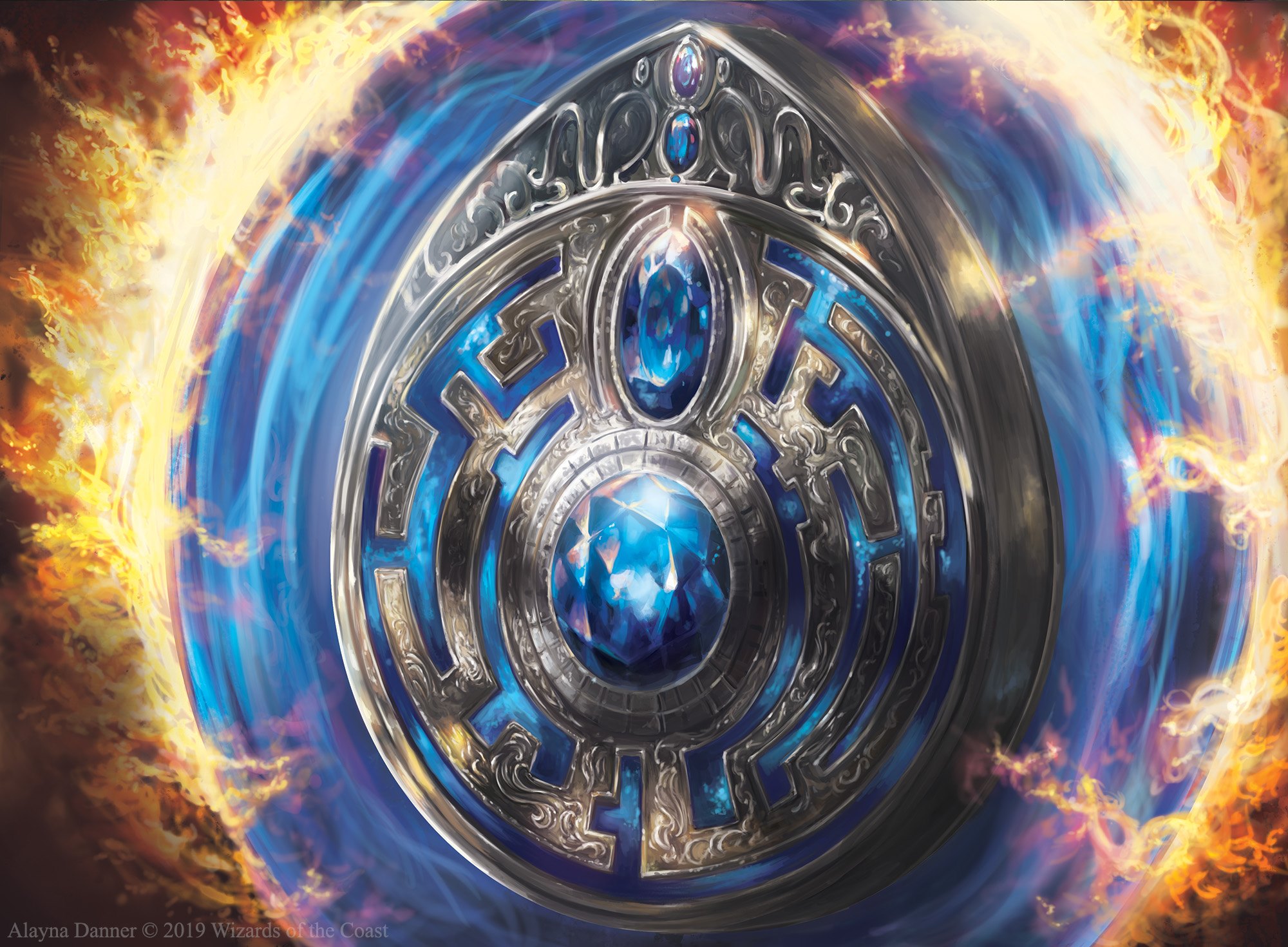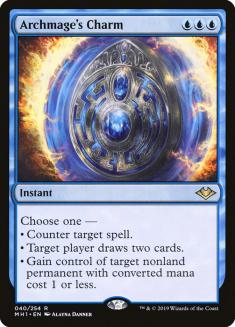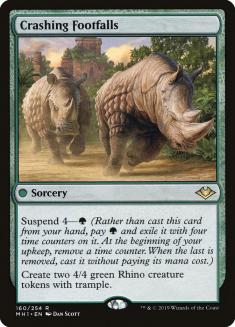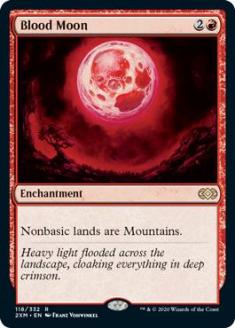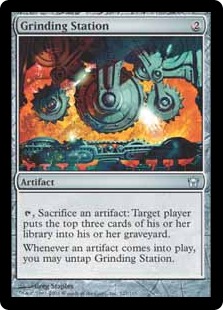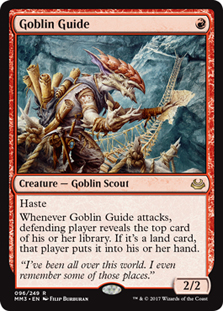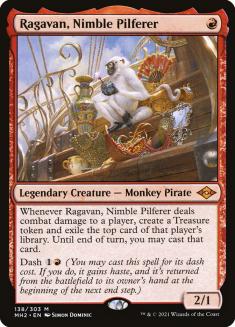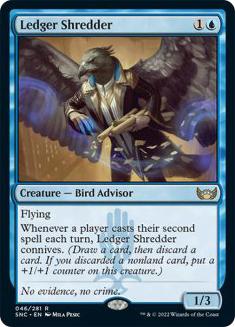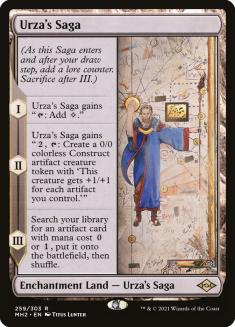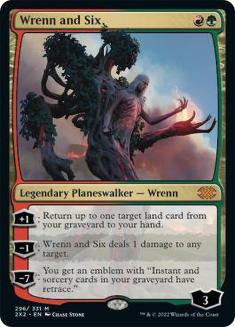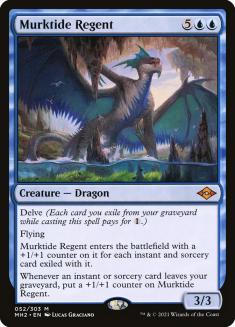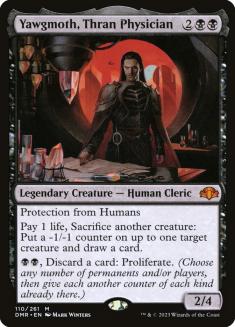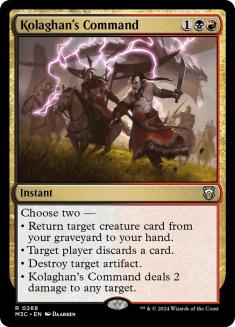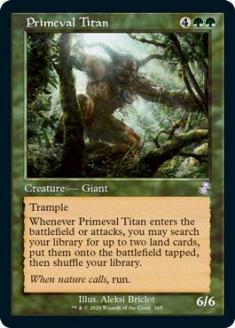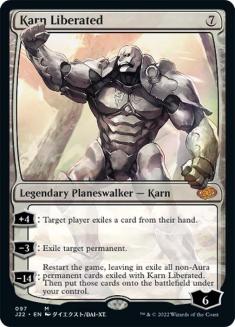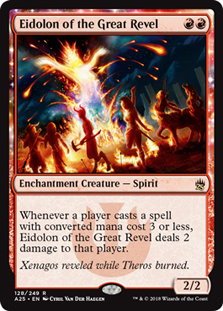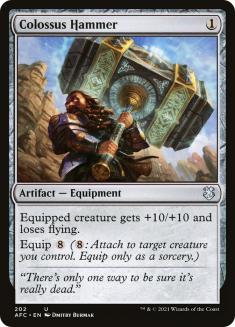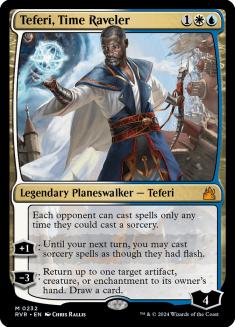Most of my brewing time has been dedicated to the new Standard. The format is fresh, right out of a rotation, and will be the format of competitive play down the road. Even with a renewed focus on Standard, the popularity of the other formats has not dropped. Modern and Pioneer are alive and well, especially on the larger competitive tours out there. There is a reason why SCG showcases these two, as I would do the same thing in their position. Standard was a train wreck for years and Wizards must earn the trust back from the organizers and competitors. In the meantime, Modern and Pioneer are the two formats we should all dedicate time to.
With SCG Dallas around the corner, my focus will temporarily shift to Modern. I had a killer run with Azorius Control over the course of a year, but the last event left a bad taste in my mouth. I teamed with Eli Kassis and Corey Baumeister, two great pals that I did not want to let down. Eli did not lose a match in Legacy with Mono-Green Elves, so Corey and I were to blame for falling short. Between the two of us, I will take the majority of the fault, as Azorius Control was not the deck to pilot in that event.
I ended the day with only three wins, two against Izzet Murktide and one against Temur Rhinos. None of those matches went to Game 3, as I continued to feast against these archetypes. Izzet Murktide tries to tango with control in the late-game. That strategy rarely works against Azorius Control, especially in Modern. Temur Rhinos is easily the best matchup for me without a doubt. The deck folds to nearly every spell in Azorius Control, most notably Chalice of the Void, Supreme Verdict, and Teferi, Time Raveler. Even the countermagic and removal is extremely effective, with Temur Rhinos trying to cross the finish line with mundane threats.
The rest of the day went horribly, with two losses to resolved Blood Moon, something that has yet to happen to me in competitive play while piloting Azorius Control. There are ample ways to fend off a Blood Moon, the most obvious method to fetch out a Plains early. Even though I knew it was coming, it destroyed me in two separate matches in games I was well ahead in. Outside of the two losses to Blood Moon, the other three defeats were to Four-Color Control (Yorion), Grixis Death’s Shadow, and Golgari Yawgmoth. Two of those matches were very close, but Azorius Control did not come through for Team BCW.
I will not let one bad event push me away from an archetype I love to pilot. The reason I am making the shift now is not on Azorius Control’s poor performance, but an enticing alternative. Well before the rest of Team BCW was in love with Grinding Station, I took down an SCG Regionals with it in 2020. Since then, many advancements have hit the legal card pool, while only losing Arcum’s Astrolabe. Arcum’s Astrolabe is a broken Magic card; however, Grinding Breach has quickly bounced back. With the power of Ledger Shredder and Ragavan, Nimble Pilferer, Jeskai Breach was born.
I wrote a rudimentary deck list for this, prior to the last team event. I sent it to Eli, and he said that he was working on something similar. It had many of the elements as successful lists have today, but it was untested, and I chickened out. Azorius Control is my safe choice, the deck that has repeatedly delivered strong results for me. Repeating what my buddy Brian Braun-Duin has said about me, I am 90% control, 9% bad combo decks, and 1% aggro. The last statistic is a bit slanderous, as I would never Goblin Guide anyone, but I will let it slide.
Creatures (14)
- 4 Emry, Lurker of the Loch
- 1 Thassa's Oracle
- 1 Dragon's Rage Channeler
- 4 Ragavan, Nimble Pilferer
- 4 Ledger Shredder
Lands (21)
Spells (25)

Creatures (13)
Planeswalkers (2)
Lands (21)
Spells (24)

Ross and Corey both took the plunge with Grinding Breach decks, one with Izzet and the other with Jeskai. I am partial to the Jeskai version, as Teferi, Time Raveler is the planeswalker I cannot quit. Ross won this event, with Corey finishing in third place. Since then, many other players have seen success in various tournaments, with this amazing deck. In my inaugural version last year, I tried to find anyway to add another dimension to its victory path. The combo itself is fragile, so I leaned heavily on Urza, Lord High Artificer to push through damage when the hate came in. It worked then, barely, but these lists can do it with their eyes closed.
Ledger Shredder and Ragavan, Nimble Pilferer create that extra layer for opponents to fend off. While avoiding the combo from crashing in on Turn 3, enemy decks must stop an early Ledger Shredder and/or Ragavan from dealing lethal damage. At the same time, both creatures produce a ton of advantage, either from filtering with Ledger Shredder or piling up treasures and playing the opponent’s spells from Ragavan. The old Jeskai Breach decks were incapable of this tiered attack, leaving themselves vulnerable to the powerful hate that exists in Modern. As Ross and Corey discovered, the current version is much stronger than what the old man played two years ago.
In addition to the new creatures, Urza’s Saga has cranked the power level of Jeskai Breach through the roof. This enters as a land, not taking up space from the roster of required cards that make the deck function. It produces two powerful creatures, while leaving behind an artifact gift on the battlefield. This was a no-brainer inclusion, as it is often the main reason Jeskai Breach wins in competitive play. There are some other slight modifications to the deck, but these new additions are the reasons why I am playing Jeskai Breach in my next Modern event.
The Decks to Beat
The Modern metagame continues to be a tough one to get right. Therefore, Azorius Control has been a solid choice, ever since it received the upgrades in the disruption department. Jeskai Breach is in an even better position in a turbulent metagame. The difficulty in defeating a combo deck with game-ending Turn 1 and 2 creatures cannot be understated. Typically, removal comes out against combo decks, a strategy that cannot be done against Jeskai Breach. Leaving yourself vulnerable to Ragavan, Emry, Lurker of the Loch, and Ledger Shredder is a recipe for disaster. If you command ample removal for those threats, a quick death to the Grinding Station and Underworld Breach is in your future. This dynamic approach by Jeskai Breach is why it is ready to take on whatever the metagame has in store for it.
The most played Modern deck online continues to be Izzet Murktide, but I do not think it is represented as well in-person. It is still a popular deck; however, there are likely as many Four-Color Control (Yorion) decks in attendance. These are the two decks that Jeskai Breach is likely to face off against. The matchup against Izzet Murktide is slightly worse, though still close to a coinflip. The Four-Color Control (Yorion) deck is an underdog here, since its removal is stretched thin against the early-game threats of Jeskai Breach, while it also has a difficult time disrupting the combo. There are many cards in the Four-Color Control (Yorion) deck that generate value. The issue is time, a resource that is diminished when auto-kill combos are present.
The midrange matchup, against decks like Golgari Yawgmoth and Grixis Death’s Shadow, vary wildly. Jeskai Breach slaps Golgari Yawgmoth around, while folding hard to Grixis Death’s Shadow. The weakness of Jeskai Breach lies with the disruption. If the disruption can hit creatures and combo pieces, then the game can get messy for us. Relentless hand disruption, Drown in the Loch, and Kolaghan’s Command hurt, especially when there is a creature threat behind them. Even decks like Rakdos Midrange can be tough to navigate, though the lack of blue disruption is slightly comforting. Protecting the combo is difficult, if all the opposing disruption is that versatile.
There are matchups that I want to see every time with Jeskai Breach. The easiest are those in the big mana world, like Amulet Titan and Mono-Green Tron. These decks spend a decent portion of their time setting up, not having the ability to interact with our side of the battlefield. Amulet Titan is capable of having absurd draws that may challenge Jeskai Breach, though it does not happen often. Mono-Green Tron does not have that luxury and even a Turn 3 Karn Liberated can be defeated with a decent draw. Each of these decks have some sideboard hate to bring up their percentage a little, but it is not enough to make a significant difference in the matchup.
The true aggro decks are good matchups for Jeskai Breach. Burn can apply a ton of pressure and kill creatures, but their victory usually rests on having Eidolon of the Great Revel out. Azorius Hammer is another aggro deck that can only apply a quick clock and has a very difficult time interacting with Jeskai Breach. If you face those matchups, having a single piece of removal is usually enough to ensure your side develops, while their side is disrupted.
True control decks, like Azorius Control, are close to even against Jeskai Breach. The game is won or lost on having removal for Emry and/or Ragavan early, while able to take a few hits from a resolved Ledger Shredder. Lining up the removal is imperative in this matchup, with cards like Urza’s Saga getting blown up by on-curve Teferi, Time Raveler or a renegade Spreading Seas. Jeskai Breach can still win the game out of the blue, protecting its combo with their own Teferi, Time Raveler, or taking advantage of a tapped-out player with their combo kill. As an Azorius Control fanatic, I would prefer to avoid Jeskai Breach for that reason. In my next event, I hope to navigate these matchups well enough to bring home the trophy once again.

